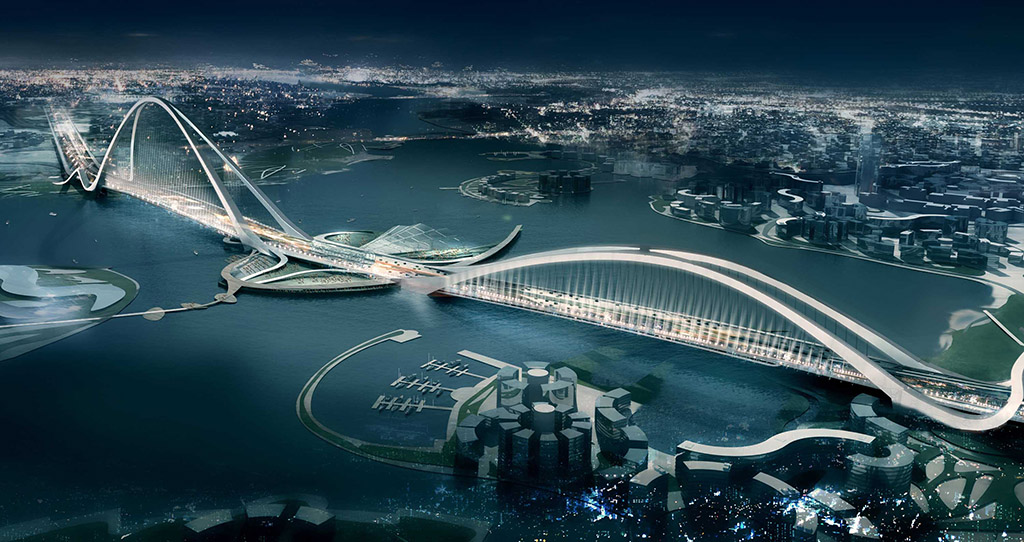Dubai: Welcome to the Future

I have just returned from the future. It is a breathtaking place, a global work-in-progress that is drawing people, companies, and ideas into a whirling vortex of opportunities. I had thought that London or New York were the global cities par excellence, but I was wrong. The energy and pace of Dubai are something else. In the space of 20 years, this small trading port on the Persian Gulf has become the fastest growing city on earth. Its economy is growing at the rate of 16 per cent per annum and the city is attracting 24,000 new residents per month. In the last two years, mote than 4,500 new buildings have burst on to the landscape, creating an Arabian Manhattan.
However, Dubai’s most dazzling feature is the diversity of people and cultures represented there. The city has used its strategic position on Arabia’s ancient trading routes as a springboard for its evolution into a 21st-century hub for world business. In this small desert emirate, American financiers rub shoulders with British engineers, Russian billionaires, and European designers, while Arab sheikhs, pop artists, and sports stars have bought homes there. And in the background is a vast army of Indian and Pakistani construction workers, Asian chefs, and African hospitality workers who keep the city running day and night.
Like Hong Kong, Shanghai, and Silicon Valley, Dubai is a magnet for ambitious young professionals. But what kind of experience do they have in Dubai? And what attracted them in the first place? I put these questions to a group of young managers I was coaching in Dubai last week. They came from places as diverse as Russia, Lebanon, India, Australia, and South Africa. First, they said, it was the excitement of working in a city that is literally springing up around them. Next, they saw Dubai as an opportunity to gain valuable work experience, both as entrepreneurs and in established companies. Third, they liked the buzz of working in a multicultural environment, although some women were finding the attitudes of the ruling Arab classes difficult to manage. Finally, they admitted that the lifestyle was a bit of a draw, too.
After some discussion, it became clear that these young managers had already become used to living in a highly rarefied world. It hadn’t occurred to them, but they agreed that the circumstances in which they were managing were far removed from what they might expect in their home countries. In Dubai, they experienced no staff shortages, no budget issues, and no constraints on their freedom to manage. In fact, their only issues were how to manage growth in an exploding economy. They worked in sparkling new office blocks and lived in apartments serviced by unusually polite and caring staff from Asia and India, enjoying a degree of comfort and support that would be unimaginable in any of the developed world’s cities. Outside work, they had unparalleled leisure facilities, a vast ocean and desert escapes where they could recharge their batteries.
For many, this will sound like the standard expat lifestyle, but I believe that something quite different is going on in Dubai. Unlike other postings, the city is an artificial construct, the ambitious vision of the ruling Maktoum family to turn a sleepy desert emirate into a modern metropolis. The cheap labour that keeps the wheels of the city turning is a double-edged sword: at the moment, there are enough migrant workers to fill the jobs, but if their local economies take off, fewer might be willing to work long hours for poor pay. That will surely affect the way business is run and the standard of living there.
But that is all in the future. For the moment, I remain curious about the world view of the managers who are currently working in this Arabian fantasy city. How will the city shape their view of the world? How will they cope if there is a downturn in the region (or, heaven forbid, a terrorist attack)? What skills will they lack when they have to re-enter the ‘real’ world of pressures, cost-cutting, and hard commutes? What kind of values will young managers hold, after having grown used to being looked after by a willing serving class? But perhaps I am hopelessly out of date. Maybe this is now the real world, where the global elite is served by the world’s poor. Perhaps Dubai is simply an obvious manifestation of the gaping chasm between the world’s classes.
Dubai is clearly a wonderful glimpse of the future. And, if you are lucky enough to be a professional or wealthy investor, it can offer staggering opportunities. But what happens if you begin to think this is the norm? What happens if you become seduced by a lifestyle that caters to your every whim and a booming economy with limitless opportunities?
Read More at: www.hbr.org
